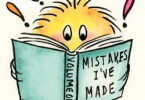IELTS Reading: Aphantasia: A life without mental images - Phân tích từ vựng
Hãy cùng diễn đàn đọc qua một bài IELTS Reading về hội chứng Aphantasia và đi vào phân tích từ vựng mới bên dưới nhé.
Aphantasia: A life without mental images
Close your eyes and imagine walking along a sandy beach and then gazing over the horizon as the Sun rises. How clear is the image that springs to mind?
Most people can readily conjure images inside their head - known as their mind's eye. But this year scientists have described a condition, aphantasia, in which some people are unable to visualise mental images.
Niel Kenmuir, from Lancaster, has always had a blind mind's eye. He knew he was different even in childhood. "My stepfather, when I couldn't sleep, told me to count sheep, and he explained what he meant, I tried to do it and I couldn't," he says. "I couldn't see any sheep jumping over fences, there was nothing to count."
Our memories are often tied up in images, think back to a wedding or first day at school. As a result, Niel admits, some aspects of his memory are "terrible", but he is very good at remembering facts. And, like others with aphantasia, he struggles to recognise faces. Yet he does not see aphantasia as a disability, but simply a different way of experiencing life.
Mind's eye blind
Ironically, Niel now works in a bookshop, although he largely sticks to the non-fiction aisles. His condition begs the question what is going on inside his picture-less mind. I asked him what happens when he tries to picture his fiancee. "This is the hardest thing to describe, what happens in my head when I think about things," he says. "When I think about my fiancee there is no image, but I am definitely thinking about her, I know today she has her hair up at the back, she's brunette. But I'm not describing an image I am looking at, I'm remembering features about her, that's the strangest thing and maybe that is a source of some regret."
The response from his mates is very sympathetic: "You're weird." But while Niel is very relaxed about his inability to picture things, it is often a cause of distress for others. One person who took part in a study into aphantasia said he had started to feel "isolated" and "alone" after discovering that other people could see images in their heads. Being unable to reminisce about his mother years after her death led to him being "extremely distraught".
The super-visualiser
At the other end of the spectrum is children's book illustrator, Lauren Beard, whose work on the Fairytale Hairdresser series will be familiar to many six-year-olds. Her career relies on the vivid images that leap into her mind's eye when she reads text from her author. When I met her in her box-room studio in Manchester, she was working on a dramatic scene in the next book. The text describes a baby perilously climbing onto a chandelier.
"Straightaway I can visualise this grand glass chandelier in some sort of French kind of ballroom, and the little baby just swinging off it and really heavy thick curtains," she says. "I think I have a strong imagination, so I can create the world and then keep adding to it so it gets sort of bigger and bigger in my mind and the characters too they sort of evolve. I couldn't really imagine what it's like to not imagine, I think it must be a bit of a shame really."
Not many people have mental imagery as vibrant as Lauren or as blank as Niel. They are the two extremes of visualisation. Adam Zeman, a professor of cognitive and behavioural neurology, wants to compare the lives and experiences of people with aphantasia and its polar-opposite hyperphantasia. His team, based at the University of Exeter, coined the term aphantasia this year in a study in the journal Cortex.
Prof Zeman tells the BBC: "People who have contacted us say they are really delighted that this has been recognised and has been given a name, because they have been trying to explain to people for years that there is this oddity that they find hard to convey to others." How we imagine is clearly very subjective - one person's vivid scene could be another's grainy picture. But Prof Zeman is certain that aphantasia is real. People often report being able to dream in pictures, and there have been reported cases of people losing the ability to think in images after a brain injury.
He is adamant that aphantasia is "not a disorder" and says it may affect up to one in 50 people. But he adds: "I think it makes quite an important difference to their experience of life because many of us spend our lives with imagery hovering somewhere in the mind's eye which we inspect from time to time, it's a variability of human experience."
Phân tích từ vựng mới:
-
Spring /sprɪŋ/ (v): to appear suddenly (hiện ra ngay lập tức)
Example: "Where did you spring from? - I didn't see you come in!"
-
Conjure /ˈkʌn.dʒɚ/ (v): to make something appear by magic, or as if by magic (làm trò ảo thuật)
Example: His words conjured images of far-away action.
-
Aphantasia /ˌeɪ.fænˈteɪ.zi.ə/ (n): a medical condition in which a person is not able to form an image in their mind of things or people that are not actually present (là một bệnh rối loạn mà một người không thể hình dung nổi bất cứ hình ảnh gì trong đầu)
Example: Some people find it impossible to imagine a friend's face or their own apartment - a phenomenon named aphantasia.
-
Brunette /bruˈnet/ (n): a white woman or girl with dark hair (cô gái da trắng với mái tóc màu nâu đậm)
-
Reminisce /ˌrem.əˈnɪs/ (v): to talk or write about past experiences that you remember with pleasure (hồi tưởng, nhớ lại)
Example: Grandpa likes to reminisce about his years in the navy.
-
Distraught /dɪˈstrɑːt/ (adj): extremely worried, nervous, or upset (cực kỳ lo sợ)
Example: We were all distraught over the loss of our homes in the flood.
-
Leap /liːp/ (v): to make a large jump or sudden movement, usually from one place to another (hiện ra ngay)
Example: Mr Davies leaped in to explain.
-
Perilously /ˈper.əl.əs.li/ (adv): dangerously, or in a way that can cause problems (nguy hiểm)
Example: Mr McCain sometimes looks perilously near to losing his temper.
-
Chandelier /ˌʃæn.dəˈlɪr/ (n): a decorative light that hangs from the ceiling and has several parts like branches for holding bulbs or, especially in the past, candles (đèn chùm)
Example: A gorgeous crystal chandelier hung in the dining room.
-
Oddity /ˈɑː.də.t̬i/ (n): someone or something that is strange and unusual (người hoặc điều kỳ lạ, bất thường)
Example: As one of the few women in engineering in the 1950s, she was considered an oddity.
-
Adamant /ˈæd.ə.mənt/ (adj): impossible to persuade, or unwilling to change an opinion or decision (cứng rắn, không thể bị thuyết phục)
Example: I've told her she should stay at home and rest but she's adamant that she's coming.
-
Hover /ˈhʌ.vɚ/ (v): to stay in the air in one place (lảng vảng)
Example: A helicopter hovered overhead.
Nguồn tham khảo: IELTS Up
بت 303 هات بت بت فوروارد بت فوروارد بت کارت تک بت بازی انفجار تخته نرد پوکر شرطی گل یا پوچ دنس بت جت بت سیب بت بت برو بت کارت کنون بت مل بت آیس بت ای بی تی 90 آس بت دل بت بت 90 حضرات بت تک بت بت برو بت بال 90 ای بی تی 90 بازی انفجار سیب بت سایت سیب بت دنس بت بازی انفجار سایت شرط بندی تخته نرد شرطی هات بت بت فوروارد ورود به بازی انفجار شرط بندی فوتبال پیش بینی فوتبال سایت بازی انفجار شرط بندی انفجار انفجار شرطی سایت شرط بندی انفجار گل یا پوچ شرطی پوکر شرطی انفجار هات بت پاسور شرطی شرط بندی گل یا پوچ تخته نرد شرطی شرط بندی پوکر سایت ریور پوکر شرط بندی بلک جک شرط بندی رولت سایت شرط بندی فوتبال بازی انفجار ضریب بالا معتبرترین سایت بازی انفجار بهترین سایت شرط بندی انفجار بازی انفجار با ضرایب بالا انفجار هات بت انفجار کازینو بهترین سایت های بازی انفجار سایت بازی انفجار بدون فیلتر اپلیکیشن بازی انفجار بازی انفجار شرطی سایت بازی انفجار رایگان سایت هات بت سایت شرط بندی هات بت هات بت بدون فیلتر سایت دنس بت بهترین سایت شرط بندی دنس بت بدون فیلتر سایت جت بت جت بت بدون فیلتر جت بت jetbet سنگ کاغذ قیچی سایت شرط بندی سایت شرط بندی فوتبال سایت تاینی بت سایت آیس بت آیس بت بدون فیلتر سایت سیب بت سیب بت بدون فیلتر سایت بت برو سایت کنون بت سایت بت 90 تخته نرد شرطی ضریب انفجار هات بت انفجار دنس بت دنس بت کازینو آنلاین بت برو فارسی وان ایکس بت بدون فیلتر سایت وان ایکس بت سایت بت فوروارد سایت تک بت سایت حضرات بازی انفجار رایگان سایت آیس بت سایت اصلی دنس بت سایت دل بت 90 سایت بت 90 سایت بت بال 90 سایت ای بی تی 90 سایت بت 365 سایت دو همدم همسریابی طوبی همسریابی توران همسریابی شمیم یار همسریابی نازیار همسر جون پستو چت سایت بهترین همسر دوست یابی بادو آغازی نو همسریابی همسریابی هلو نرم افزار همسریابی پیوند نرم افزار دوست یابی سایت زوج یابی سایت زوج یابی صیغه یابی آغازی نو همسریابی چت روم دوست یابی بهترین سایت همسریابی بهترین سایت همسریابی بهترین سایت دوست یابی بهترین سایت دوست یابی ورود به همسریابی همسر یابی همدم لاویتا همسریابی لاویتا دانلود اپلیکیشن لاویتا سایت lovita دوست یابی دوستیابی لاویتا سایت رسمی لاویتا دوستیابی آنلاین لاویتا دوست یابی song lyrics Top 10 lawyers











Bình luận